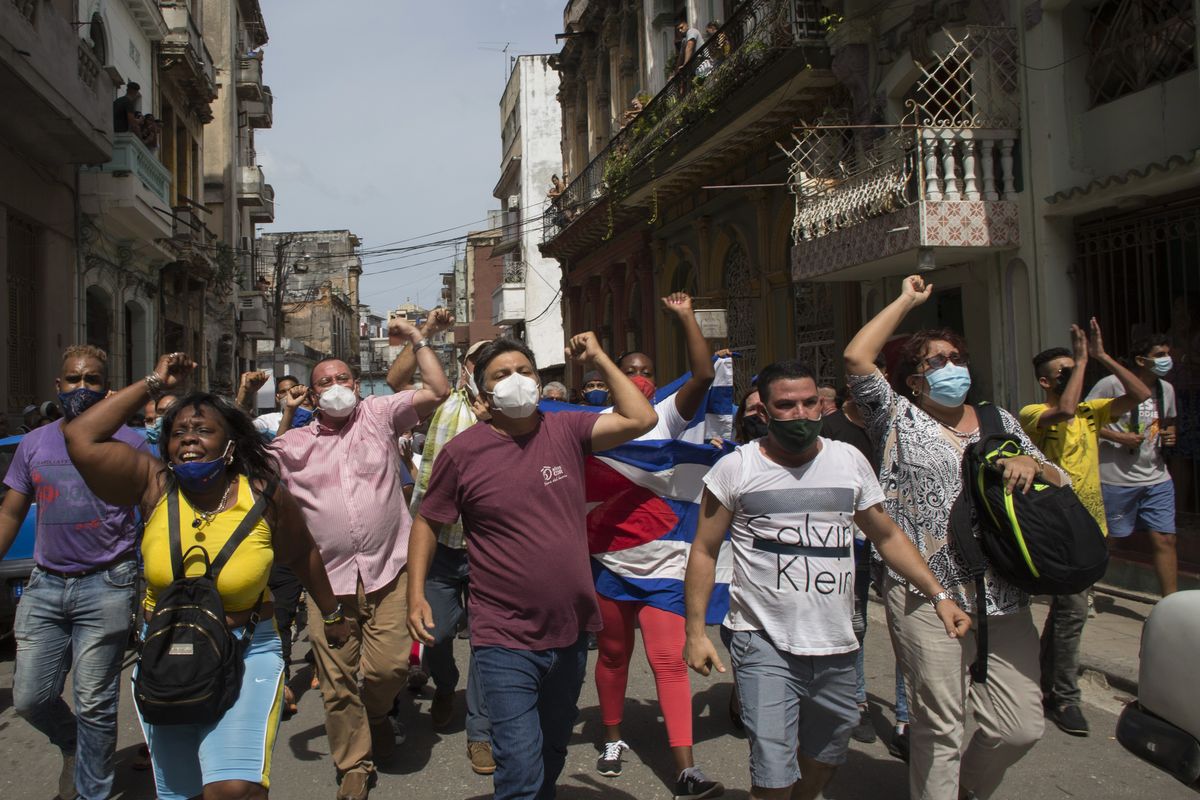Cuba: US protest narrative paving way for military incursion

HAVANA – Cuba criticized the United States and President Joe Biden on Wednesday for a series of statements by senior officials after the unprecedented protests on the island last week, accusing the U.S. government of seeking to justify a military intervention.
Johana Tablada, deputy director for U.S. affairs at Cuba’s Ministry of Foreign Affairs, said U.S. officials are painting a false picture of the situation in Cuba, which is struggling with severe economic problems amid a surge in coronavirus infections.
“There is a Walt Disney narrative of a bad government and people fighting for their freedom – stereotypes that scare anyone who has never set foot in Cuba, because of their arrogance and disregard for the truth,” Tablada told the Associated Press.
“They are very interested in fabricating an alternative reality because the riots of July 11 weren’t enough to justify the war that is being waged on us,” she added.
Communicating via social networks, thousands of Cubans took to the streets July 11 in various parts of the country to voice complaints over power cuts, long lines at stores, shortages of goods and rising prices, while some called for changes in the government. The protests ended in acts of vandalism, destruction of patrol cars, stone throwing at hospitals and looting.
There were also violent arrests of protesters by the police, witnessed by AP, and according to authorities one death. Officials have not released a list of prisoners, but Human Rights Watch said in a reported Wednesday that about 500 had been arrested.
The day before, Col. Víctor Alvarez at the Ministry of the Interior said that some detainees had been released when there wasn’t enough evidence to prove they participated in protests, but others were being processed by the judicial system. He did not give any numbers or other details.
The protests were the largest in more than two decades, while groups of government supporters also took to the streets, including tens of thousands on Saturday.
Authorities suspended cellphone internet data service on the island, charging that a campaign orchestrated from the United States used robot messaging on Twitter and other social media to instigate the demonstrations. Officials also insisted that U.S. sanctions imposed by the Trump administration are responsible for the island’s shortages of food, medicine and fuel.
A petition on Change.org created by a citizen in Belgium asking for the U.S. government to invade Cuba has been signed by almost 500,000 people, and some Florida politicians have raised such an action as a possibility.
Tablada said that while there are no current U.S. military movements aimed at Cuba, there are signs of extreme aggressiveness, such as those that led to an interventions in Libya and Iraq.
“We are at a time when discourse has deteriorated to unprecedented levels,” she said. “From the Biden government in regards to Cuba, we have seen parading several times a day, every day since July 11, senior United States officials saying things that are not true” about Cuba.
Biden promised during his election campaign that he would resume President Barack Obama’s policy of rapprochement with the island, but after entering the White House, he kept in place all the toughened sanctions imposed by President Donald Trump, including adding Cuba’s government to a list of sponsors of terrorism.
The White House has said a working group has been told to review the U.S. policy blocking Cuban Americans from sending money to Cuba but to ensure that the Cuban government does not serve as intermediary in the flow of cash. Washington says it is also considering increasing the staff at its embassy in Havana to facilitate the participation of civil society.
Cuba is going through one of the worst economic crises in its history, a mixture of its own inefficiencies, the blow of the COVID-19 pandemic and the impact from U.S. sanctions.